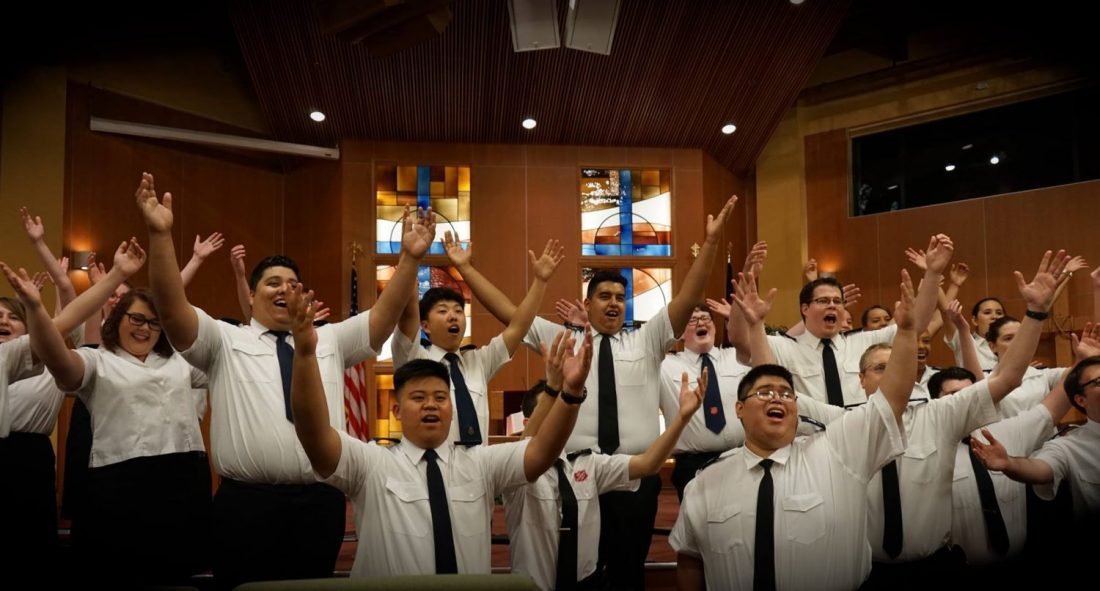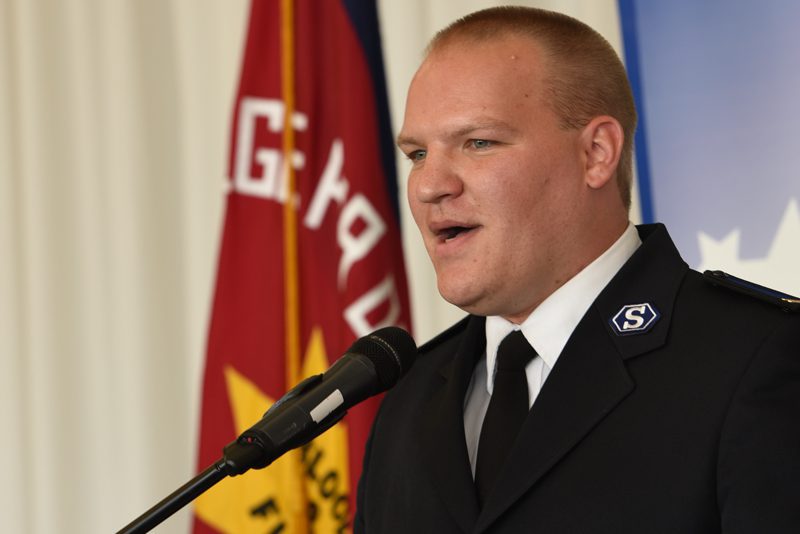by Robert Docter –
Faith, hope and love. Paul said the greatest of these is love. I think they are inseparable.
Can one love without faith? Isn’t it something else when what we think of as “love” is expressed without faith? Wouldn’t we call it something like infatuation or obsession or just a plain downright crush? If one truly loves, it seems to me that faith must be present. Faith says loyalty–fidelity–trust–consistency over time. Aren’t these essential elements of love?
Is it possible to have faith without love? Faith, it seems to me, involves the development of a very strong belief system built around ideas which have been personified in some way. They have been articulated and identified with some sense of spirit which someone has come to accept as true. As one develops the firm belief that is faith, one begins to love the object of the faith. For example: Does a former U.S. Marine ever say “Semper fi” to another marine without sending a message of love for the Corps? While we might fear the awesome power of God in whose existence we have faith, we also sense his magnificent grace and develop a bond of deep love for him.
And what of hope? Hope involves belief, fidelity, consistency, trust. It also has about it an expectation that the matter hoped for will occur. This expectancy is believed. There is a sense of faith that the hope will be fulfilled. We do not hope for negative ends. Our hope is directed at the positive. We love what we want fulfilled.
Some hope they will win the lottery. It’s evident what they love. Some hope for the success of their children. Some express that hope as a selfless desire for the spiritual well-being, the physical health, the emotional stability, and the social achievement of their offspring.
For some, the expression of hope for their children is actually an expression of self-centeredness. They want whatever success means in order to glorify themselves. Their children simply are tools to manipulate so that the parents will receive some kind of recognition. Even when the children have reached an appropriate age, the self-centered parent is unwilling to trust the children with freedom. Is this love for the child, or is it love for self? The same kind of pattern exists in some marriages. Some even relate to God in the same self-centered way. What God hopes for is a broken and contrite heart, but humankind often tends to relate to God with a kind of “what have you done for me lately?” attitude. Some word other than “love” needs to be used to describe this kind of a relationship.
None of us are free of hope for ourselves. This is not wrong. It is essential. Loving one’s self is not a sin. Worshipping one’s self is the sin. What we think of when we use the word “hope” is an essential ingredient in the human condition. Hopelessness is to despair to the point of faithlessness and is a total denial that one is lovable. This doesn’t sound like a good idea to me. Life’s journey involves moving through a long series of points on the coping-collapse continuum. Hope moves us forward on the journey.
In the 71st Psalm David wrote: But as for me, I will always have hope…He made clear the source of his hope. For you have been my hope, O Sovereign Lord, my confidence since my youth.
Hope is spiritual. Faith is spiritual. Love is spiritual. While I see them as inseparable, we need, I suppose, to have separate words to discriminate subtle differences in the context of our communication. Also, a word like faithhopelove is a little awkward.
So, why did Paul say love was the greatest?
It is in the expression of genuine love that all three merge into one. So realize, when you say I love you, you are expressing faith and hope as well.












